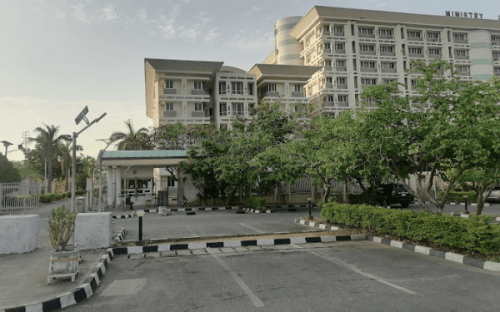Ministry of Foreign Affairs Abuja
Table of Contents
- About the Ministry of Foreign Affairs
- The Role of the Ministry of Foreign Affairs
- Diplomatic Representation
- International Cooperation
- Consular Services
- Foreign Policy Formulation
- Economic Diplomacy
- Cultural Diplomacy
- Significance of the MFA Headquarters
- Impact on Nigeria’s Global Standing
- Challenges and Future Directions
- Get in Touch
- Frequently Asked Questions
- Conclusion
About the Ministry of Foreign Affairs
The Ministry of Foreign Affairs (MFA) of Nigeria has a rich history that mirrors the nation’s journey in global diplomacy. Established in September 1957 as a unit within the office of the Prime Minister, it became the Department of External Affairs following Nigeria’s independence in 1960, with Dr. J.A. Wachukwu as the first Minister. Over the decades, the Ministry has evolved, adapting to global changes while maintaining its core mandate: to manage Nigeria’s international relations effectively.
As of 21st August 2023, the Ministry is led by Yusuf Maitama Tuggar, who was sworn in by President Bola Ahmed Tinubu.
The Role of the Ministry of Foreign Affairs
The Ministry of Foreign Affairs plays a pivotal role in shaping Nigeria’s interactions with the world. It is tasked with advancing the nation’s interests through various avenues, including:
1. Diplomatic Representation
- Embassies and Consulates: The MFA oversees Nigeria’s global network of embassies, high commissions, and consulates, serving as the primary liaison between Nigeria and other nations.
- Ambassadors and Diplomats: The Ministry appoints and manages the ambassadors and diplomats who represent Nigeria abroad, ensuring effective diplomatic communication and negotiation.
2. International Cooperation
- Bilateral Relations: The MFA negotiates treaties and agreements that foster bilateral relationships in areas such as trade, security, and technology.
- Multilateral Engagements: Nigeria’s participation in international organizations like the UN, AU, and ECOWAS is coordinated by the MFA to align with the country’s global objectives.
3. Consular Services
- Protection of Citizens: The MFA ensures the protection of Nigerians abroad through consular assistance, legal support, and emergency services.
- Visa and Passport Services: The Ministry manages the issuance of visas to foreign nationals and passports to Nigerian citizens, ensuring an efficient and secure process.
4. Foreign Policy Formulation
- Policy Development: The MFA is responsible for crafting and implementing Nigeria’s foreign policy, advising the government on international matters, and formulating strategic plans to address global challenges.
5. Economic Diplomacy
- Trade and Investment: The Ministry promotes Nigeria’s economic interests by facilitating trade agreements, attracting foreign investment, and supporting Nigerian businesses in global markets.
- Development Cooperation: The MFA collaborates with international partners to address development challenges in Nigeria, including poverty, healthcare, and education.
6. Cultural Diplomacy
- Promoting Nigerian Culture: The Ministry showcases Nigeria’s rich cultural heritage globally through events, exhibitions, and cultural exchange programs.
Significance of the MFA Headquarters
The Ministry of Foreign Affairs Headquarters in Abuja is more than just a building; it is the nerve center of Nigeria’s diplomatic efforts. The facility is equipped with various departments dedicated to different aspects of foreign relations, ensuring that Nigeria’s diplomatic missions worldwide operate cohesively.
Impact on Nigeria’s Global Standing
The MFA has been instrumental in enhancing Nigeria’s global influence. Through effective diplomacy, the Ministry has secured critical international partnerships, attracted foreign investment, and established Nigeria as a leading voice in African and global affairs.
Challenges and Future Directions
Despite its successes, the Ministry faces challenges, including resource constraints and the ever-changing global landscape. To maintain its diplomatic effectiveness, the MFA must continue to innovate, leveraging technology, enhancing diplomatic training, and engaging more deeply with the Nigerian diaspora.
Get in Touch
- Operating Hours: Monday – Friday, 8:00 AM – 4:00 PM
- Address: Tafawa Balewa House, Central Business District, Abuja
- Phone: (234) 9 52365 223
- Email: info@foreignaffairs.gov.ng
- Instagram: @nigeriamfa
- Website: www.foreignaffairs.gov.ng
Frequently Asked Questions
- What are the operating hours of the Ministry of Foreign Affairs in Abuja?
The Ministry operates from Monday to Friday, 8:00 AM to 4:00 PM. - Where is the Ministry of Foreign Affairs Headquarters located?
The Headquarters is located at Tafawa Balewa House, Central Business District, Abuja, Nigeria. - How can I contact the Ministry of Foreign Affairs?
You can contact the MFA via phone at (234) 9 52365 223, email at info@foreignaffairs.gov.ng, or visit their website. - What are the primary functions of the Ministry of Foreign Affairs?
The MFA is responsible for diplomatic representation, international cooperation, consular services, foreign policy formulation, economic diplomacy, and cultural promotion. - How does the Ministry protect Nigerian citizens abroad?
The MFA provides consular assistance, legal support, and emergency services to Nigerians abroad. - How can I apply for a Nigerian passport or visa?
You can apply for a passport or visa by visiting the MFA’s official website or contacting the nearest Nigerian embassy or consulate. - How does the Ministry promote Nigerian culture internationally?
The MFA organizes cultural events and exchange programs to showcase Nigerian art, music, literature, and traditions globally. - What role does the Ministry play in international organizations?
The MFA coordinates Nigeria’s participation in international organizations like the UN, AU, and ECOWAS. - How does the Ministry contribute to Nigeria’s economic growth?
The MFA promotes trade agreements, attracts foreign investment, and supports Nigerian businesses in global markets. - How can I stay updated with the Ministry’s activities and announcements?
Follow the MFA’s official Instagram account or visit their website.
Conclusion
The Ministry of Foreign Affairs Headquarters in Abuja is a cornerstone of Nigeria’s diplomatic efforts. Through its diverse roles, the MFA advances Nigeria’s interests, protects its citizens abroad, and fosters global partnerships. As Nigeria navigates the complexities of international relations, the Ministry remains dedicated to building a peaceful, prosperous, and interconnected world.




